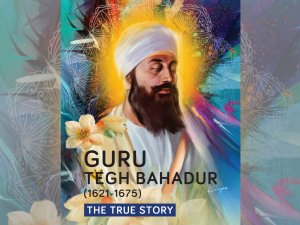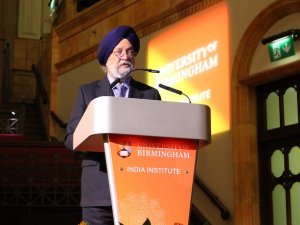Academic Freedom to Question Basics of Sikhi?
(Gurmukh Singh OBE, UK)
There is a trend amongst modern Sikh scholars to question the very founding principles of Sikhi in the name of research. Some regard this as necessary to establish their scholarly credentials. They do not seem to realise that even academic quest for knowledge should have the humility to accept its own limitations.
Heated public exchanges between Sikh scholars take place as a result, creating further doubts and divisions. Recently, Sardar Tarlochan Singh, ex-MP and Indian Minorities Commissioner, has warned that such public controversy was dangerous and created rift among the Sikhs and also created doubts about our history.
Another commentator wrote: If a scholar manipulates history and tries to stretch the truth in order to arrive at a disturbing conclusion against the treasured and sacred traditions/fundamental doctrine of a religion, then it cannot be accepted under the rubric of academic freedom.
Yet, Guru Nanak Sahib did adopt a questioning and critical approach regarding exploitation by the priestly class, the rituals and hypocrisy (pakhand) in the name of religion and practices like the caste system and treatment of women which created human inequality. Practices which did not respect human rights and dignity . However, he also pointed the right way to the followers of different religious paths. As a result, he was able to win over the leading figures of different religions of his time. His methodology did not sow seeds of division or doubt but, by clarifying the underlying truths and universal human values, it was seen and accepted in his time to unite diversity.
However, the path of Guru Nanak Sahib was distinct, for he and his Sikhs are neither Hindu nor Musalmaan. Bani of saintly people (bhagats) from diverse backgrounds was included selectively – sometimes with qualification by the Guru – because these were the reformer saints who had revolted against their own orthodox religions as practised. They shared the same universal ideals as the Guru Jot-Jugat.
This is in response to those who treat Sikhi as just another offshoot of Hinduism or those who say that it is a syncretic movement which bridges the gap between Hinduism and Islam. Sikhi emerged over the tutorial period of the Ten Gurus as the Tisra Panth, the Third Path after the Abrahamic and Eastern faiths. Sikhi of Guru Nanak derives its egalitarian ideology and institutions from the unique description of the One Timeless Being in the founding formula of Sikhi, known as the Mool Mantar.
The latest conflict in Sikh studies is between science-based and faith-based approaches to religion. The purely scientific approach challenges the traditional interpretation of Sikhi as we know it and as defined through the definition of a Sikh in the Sikh Reht Maryada, that is, total belief in One Immortal Being; Ten Gurus and their teachings, and Sri Guru Granth Sahib; and, Amrit initiation bequeathed by Guru Gobind Singh Ji.
Renowned Sikh thinker, Dr I J Singh points to the correct approach when he writes, “In fact, science and religion are complementary – two sides of the same coin. Science explores order in existence; religion must find meaning in it. One would be pointless without the other. Unfortunately, between the scientists lack of concern with the meaning of their work and the priests ignorance or fear of science, both destroy what they aim to love and understand – human heart, mind, body and soul.”
He points out that scientific theory changes with new discoveries while religious insights, “though made at a point in time and space, are made for all time, or else they would have no value…. It is tempting to take what is written for all eternity and apply it literally to what science reveals to us at a given point in time.”
Regarding the ongoing distortion of Sikh ideology and history, in a recent article in the Sikh Review, Dr Hardev Singh Virk quoted S Puran Singh as follows:
It is to be regretted that Sikh and Hindu scholars are interpreting Guru Nanak in the futile terms and dissecting texts to find the Guru’s meaning to be same as of the Vedas and Upanishads. This indicates enslavement to the power of Brahmanical traditions".
Indeed, it does.
Our aim should be to bring faith and reason together with due regard to Sikh ideology, institutions and identity developed as a distinct way of life, based on the teachings of the Ten Nanaks now enshrined in Sri Guru Granth Sahib.
Gurmukh Singh OBE
E-mail: [email protected]





